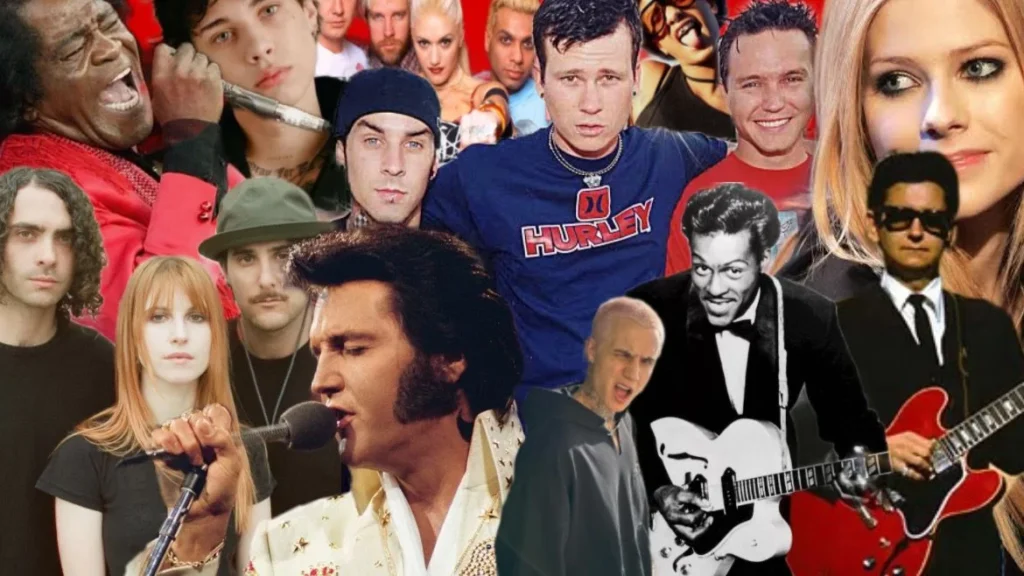
Pop rock has been a dominant force in popular music for over five decades, blending the catchy melodies of pop with the energy and instrumentation of rock. While many fans appreciate its timeless appeal, there are several lesser-known facts about the genre that highlight its influence and evolution. Here are seven surprising facts about pop rock from the 1970s to today, featuring some of the biggest artists and bands along the way.
- Pop Rock’s Rise Was Fueled by Soft Rock in the 1970s
Before pop rock became the powerhouse it is today, the genre was shaped by the soft rock movement of the 1970s. Bands like Fleetwood Mac and The Eagles brought rock music to mainstream audiences by blending melodic hooks with polished production. Fleetwood Mac’s Rumours (1977) became one of the best-selling albums of all time, proving that rock music with pop sensibilities could dominate the charts. The Eagles’ “Hotel California” showcased intricate songwriting and harmonies while still being radio-friendly. This era laid the foundation for later pop rock acts by proving that accessibility didn’t mean compromising artistic integrity.
- Power Pop Became the Bridge Between Pop Rock and Punk
In the late 1970s and early 1980s, power pop emerged as a bridge between pop rock and punk rock. Bands like Cheap Trick and The Cars infused their music with punk’s energy while maintaining the catchy hooks of pop rock. Cheap Trick’s Live at Budokan (1978) showcased their ability to write anthemic, energetic songs like “I Want You to Want Me,” which became a massive hit. Meanwhile, The Cars blurred the lines between new wave and pop rock with tracks like “Just What I Needed.” This era proved that pop rock could have an edge while still being commercially viable.
- Pop Rock Became a Staple of MTV’s Early Years
The launch of MTV in 1981 changed the way music was consumed, and pop rock artists were among the biggest beneficiaries. Bands like Duran Duran and Hall & Oates thrived in the video era, using their visually engaging music videos to captivate audiences. Duran Duran’s “Hungry Like the Wolf” and “Rio” featured cinematic storytelling that set new standards for music videos, while Hall & Oates’ “Maneater” helped define the sound of the 1980s. The visual element of MTV allowed pop rock artists to connect with a global audience in a way that had never been possible before.
- The 1990s Saw a Shift Toward Alternative and Pop Rock Hybrids
While grunge dominated the early 1990s, bands like Goo Goo Dolls and Matchbox Twenty helped keep pop rock relevant by blending it with alternative rock. The Goo Goo Dolls’ “Iris” (1998) became one of the most recognizable pop rock ballads of the decade, earning widespread airplay across multiple radio formats. Matchbox Twenty’s Yourself or Someone Like You (1996) blended confessional lyrics with polished production, bridging the gap between grunge’s rawness and pop’s accessibility. This period saw pop rock adapting to the alternative revolution rather than being overshadowed by it.
- Pop Punk Helped Revitalize Pop Rock in the 2000s
The early 2000s saw a resurgence of pop rock, but this time it came with a punk twist. Bands like Blink-182, Sum 41, and Fall Out Boy infused pop rock with the energy of punk, making it more appealing to younger audiences. Blink-182’s Enema of the State (1999) set the stage with infectious melodies and irreverent lyrics, while Fall Out Boy’s From Under the Cork Tree (2005) brought an emotional and theatrical element to pop punk. This era introduced a generation of fans to pop rock through the lens of skate culture and youthful rebellion.
- The 2010s Brought a New Wave of Pop Rock with Indie Influences
As the 2010s unfolded, pop rock underwent another transformation, incorporating indie and folk elements. Artists like Imagine Dragons and OneRepublic modernized the genre by blending electronic production with traditional rock instrumentation. Imagine Dragons’ Night Visions (2012) produced massive hits like “Radioactive,” which combined rock energy with electronic beats. OneRepublic’s “Counting Stars” showcased anthemic songwriting with a folk-inspired edge. This era proved that pop rock could evolve while maintaining its core appeal.
- Pop Rock Continues to Thrive in the Streaming Era
Despite changing trends, pop rock remains relevant today thanks to streaming platforms and social media. Artists like Olivia Rodrigo and Machine Gun Kelly have brought pop rock back into the mainstream, appealing to both older fans and a new generation. Rodrigo’s SOUR (2021) channeled the emotional intensity of 2000s pop punk, while Machine Gun Kelly’s Tickets to My Downfall (2020) revived the pop punk aesthetic with modern production. These artists show that pop rock continues to adapt, proving its staying power in an ever-changing music landscape.
From its soft rock roots in the 1970s to its resurgence in the streaming era, pop rock has continuously evolved while maintaining its widespread appeal. Whether through power pop, pop punk, or indie-influenced anthems, the genre has proven to be one of the most adaptable and enduring styles in music. As new artists continue to push its boundaries, pop rock’s legacy remains stronger than ever.
Recommended Products
As an Amazon Associate I earn from qualifying purchases.
